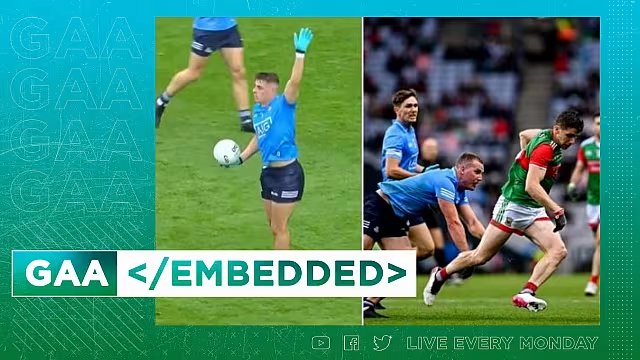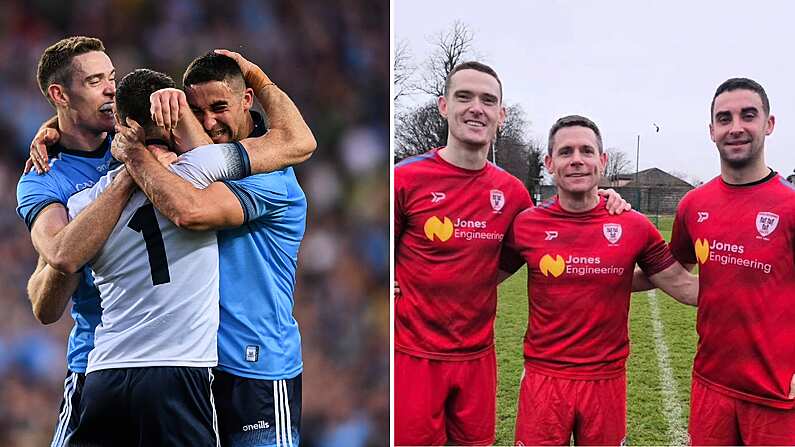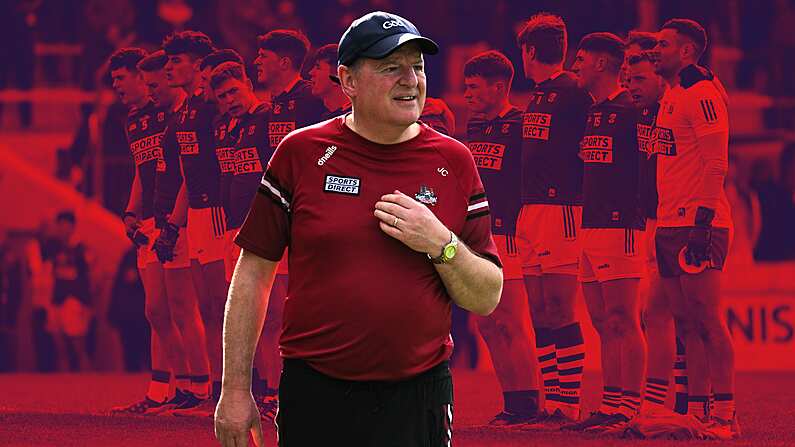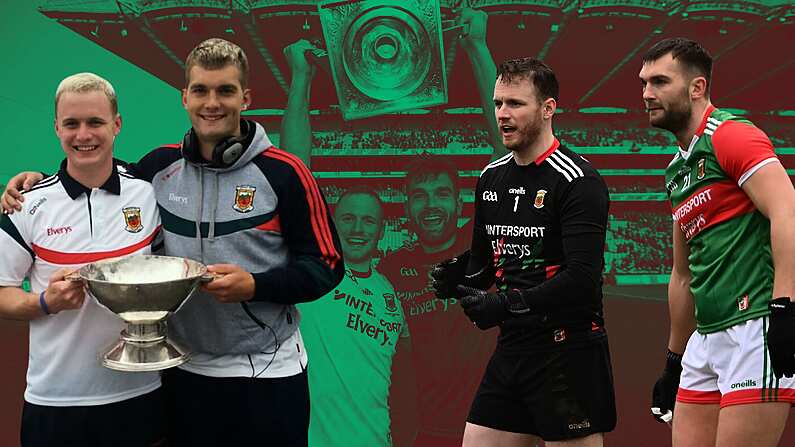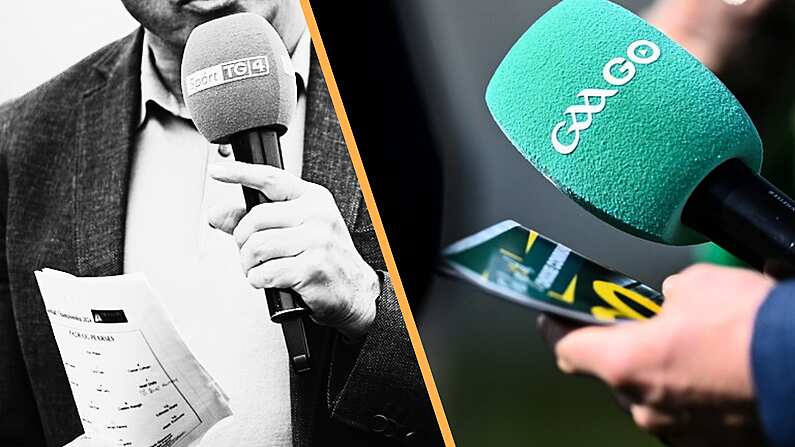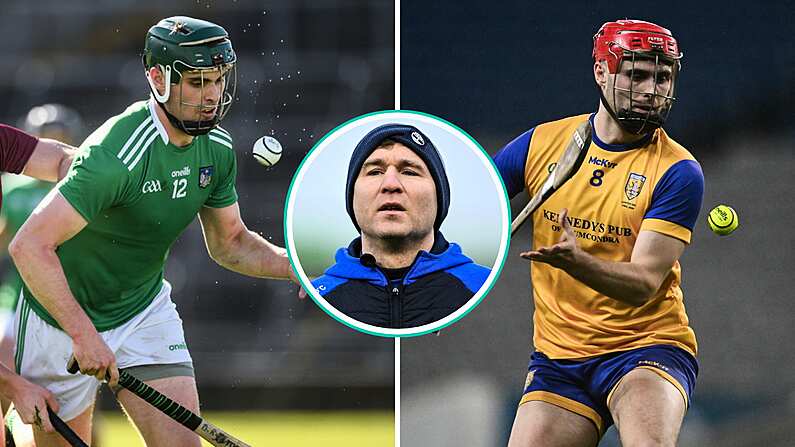The reign of Dublin in Gaelic football is over after they were felled spectacularly by Mayo in Saturday afternoon's All-Ireland semi-final.
For the Dubs, it has been a period of unparalleled success, with six All-Ireland titles in a row won for the first time ever, as well as eight in the space of ten seasons from 2011 through 2020.
We may never see a team like this Dublin one in Gaelic football again - and they may well be back with a vengeance. But the reign of complete dominance they've exerted over the sport is gone, and with it hope that a new era of competitiveness will be ushered in.
But what historical evidence do we have to go off? Is this any more than a year's blip? We decided to have a look back at some of the greatest ever sporting dynasties - and, more specifically, when they fell - to see what Dublin fans and the GAA world at large can expect from 2022 on.
The collapse of a sporting dynasty
Kerry football (1978-1987)
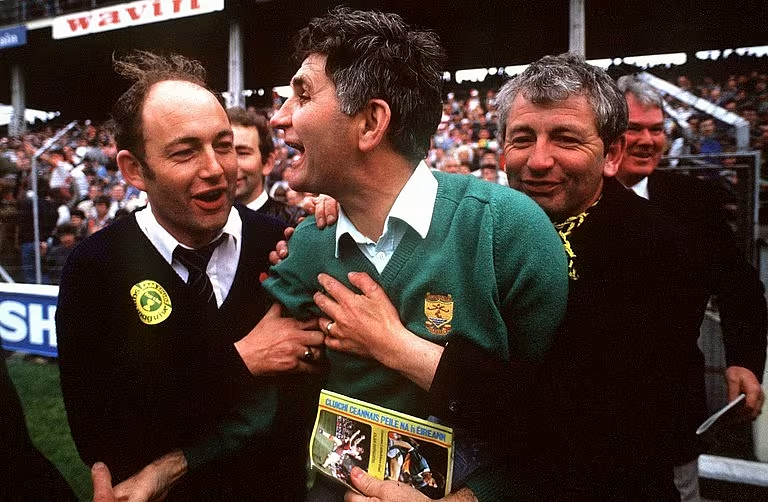
Kerry manager Mick O'Dwyer is congratulated by fans after the final whistle. Kerry v Tyrone, 1986 All-Ireland Football Final, Croke Park, Dublin. Picture credit; Ray McManus / Sportsfile
Maybe it's best to start at the team who have the most parallels with this Dublin team. For Pat Spillane and the Kerry side of the 1980s, the end was clear when it arrived. Before the Dubs went one better in 2019, Kerry's four-in-a-row from 1978 to 1981 stood as the greatest ever run of All-Ireland titles for a men's football team.
After Offaly put an unceremonious end to Kerry's five-in-a-row hopes in 1982, Dublin followed the act by winning the 1983 final. Any hopes that Kerry were dead and buried, though, were laid to rest efficiently, as the Kingdom went on to claim another three-in-a-row from 1984 to 1986.
It was only once 1987 hit that, in the words of Spillane when he spoke to us in June, they knew their reign was coming to an end.
On the 1986/87 All-Star tour, Kerry were All-Ireland champions and playing the All-Stars, and we knew it was the end of the line. We're in America and this is our last gig. The legs were gone, the mileage was up.
We had to play the All-Stars in San Franciso in Balboa Park, and we went on the tear the day before. I think the All-Stars beat us by about 30 points. We were the saddest bunch of fellas to ever represent Kerry.
That was our last tour as All-Ireland winners.
Kerry went from winning seven out of nine All-Ireland titles to a eleven-year wait for their next. They only won one title between 1986 and 2000, a stark contrast to their run of utter dominance.
Dublin will hope that their recovery is more "1984" than it is "1987" if the Kerry example is followed.
Kilkenny hurling (2006-2016)
More recently in GAA spheres was the collapse of Kilkenny's dominance of hurling in 2016. They went on an eerily similar run to this Dublin team, following a four-in-a-row from 2006 to 2009 with further titles in 2011, 2012, 2014, and 2015. Eight All-Ireland titles in ten years - with eight Leinster titles in the same period.

John O'Dwyer of Tipperary, shoots past the Kilkenny goalkeeper Eóin Murphy to score the first goal for Tipperary during the 2016 All-Ireland Senior Hurling Final between Kilkenny and Tipperary. Photo by Ray McManus/Sportsfile
2016 brought a shockingly abrupt end to their run, as they were soundly beaten in the All-Ireland final by rivals Tipperary. Nine points was the deficit on the day, and such a comprehensive defeat was regrettably an unfortunate omen of the years to come for the Cats.
Since 2016, Kilkenny have only been to one All-Ireland final, again losing to Tipperary in 2019. It would be four years before they would even win another Leinster title, an incredible fall from grace. Even though they have remained in contention year-on-year, their jarring turn from serial winners to nearly men will be a worrying omen for Dublin.
Brian Cody arrived with Kilkenny struggling in the middle of the road, and now faces a major challenge to get them back to the pinnacle of hurling.
Looking further afield, there are plenty of examples for Dublin to analyse to avoid repeating the mistakes of those who have gone before.
Manchester United (1992-2013)
As sporting dynasties go, it's hard to compete with Manchester United under manager Alex Ferguson. Forget ten year periods - Ferguson consistently kept United at the top for more than 20.
Winning his first trophy with the club - the FA Cup in 1990 - kickstarted a period of extraordinary dominance for Man United in England. When the First Division became the Premier League for 1992/93, United won the title, their first in 26 years.
They would go on to finish in the top three of the table every single season Ferguson was in charge, winning an incredible 13 titles, on top of two Champions League crowns - one won as part of an unprecedented "treble" with the league and FA Cup in 1999.
When Ferguson retired at the age of 71, Man United were left with the unenviable task of replacing one of football's greatest ever managers. They have since spent eight title-less years rifling through managers, with David Moyes, Ryan Giggs, Louis van Gaal, and José Mourinho all trying and failing to bring the title back to Old Trafford.
Having never finished lower than 3rd in Ferguson's time in charge, they have finished outside of the top four four times since he left, and Ole Gunnar Solskjaer is the first manager to bring some form of stability to the club in the time since his departure.
Liverpool (1975-1990)
Ferguson's arrival at United and their steady move towards an upward trajectory coincided with a move in the opposite direction for their great rivals Liverpool.
The red side of Merseyside saw some astonishing success in the late 1970s and early 1980s. Between 1975 and 1990, Liverpool won an incredible ten league titles and four European Cups, in arguably the greatest run of dominance ever seen from an English club.
After winning their 18th title in 1990, however, things took a turn for the worst. Manager Kenny Dalglish resigned his post the following February, and what followed was a disastrous change in fortune.
Graeme Souness, former Liverpool midfield legend and future Paul Pogba adversary, took charge and led Liverpool to a gradual slip down the league table, before he left midway through the 1993-94 season - a year in which Liverpool ultimately finished eighth.
It would be thirty years between Liverpool's title in 1990 and their next in 2020, and that's certainly not an example the Dubs will want to be following.
Ferrari (1999-2008)
But, in terms of the sporting dynasty that holds the most statistical similarity to Dublin, we take a slightly unusual look towards Formula 1, and Ferrari's reign of dominance from the late 90s through to the mid 2000s.
Despite McLaren's Mika Hakkinen winning the drivers' championship in 1999, Ferrari took the team's championship - a feat they would go on to repeat every year until 2004. A staggering and unheard of six consecutive constructors' championships and five consecutive drivers' championships for lead driver Michael Schumacher heralded the greatest run of results in Formula 1 history.
Exactly 15 years ago at Spa 🗓
Seventh heaven for the great Michael Schumacher, as he secures world title number seven at the #BelgianGP 🇧🇪 👏#F1 pic.twitter.com/qh0DYoG8GV— Formula 1 (@F1) August 29, 2019
Rule changes in 2005 proved disastrous for Ferrari's car setup, and they would have gone that entire year without a race win if it weren't for a freak race in the United States. Renault and Fernando Alonso took the 2005 and 2006 crowns and, though there was a brief renaissance for the team in 2007 and 2008, when they took three of the four championships on offer, they have now gone 12 years and counting without a title.
The Chicago Bulls and New England Patriots
There's countless other examples, and they all tend to go the same way. After a period of so much dominance, these dynasties tend to drop off dramatically quickly. The Chicago Bulls fell from grace rapidly as soon as Michael Jordan left, and it appears the same may happen to the New England Patriots now that Tom Brady has left to win Super Bowls elsewhere.
If previous examples are anything to go from, the fall from grace for Dublin may be more sudden and dramatic than we're expecting, but their fans can rest soundly in the knowledge that, of all these sporting dynasties, most had at least one more moment in the sun before the collapse.
This Dublin team deserve their place alongside the greatest sporting dynasties in history. How long they will stay at the top, however, is another matter.
SEE ALSO: How Mayo Won By Turning Dublin's Greatest Weapon Against Them
